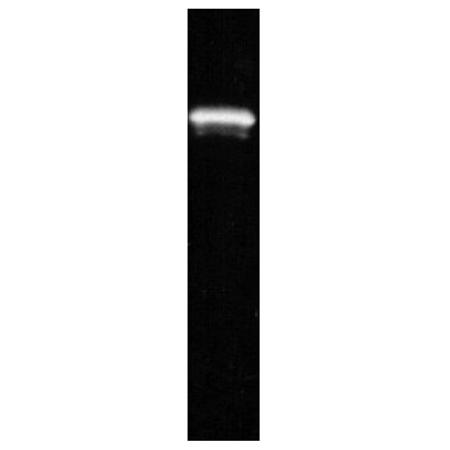p53 is a much studied and complex multifunctional protein, which acts as a tumor suppressor in many tumor types and induces growth arrest or apoptosis depending on the physiological circumstances and cell type. It is involved in cell cycle regulation as a trans-activator that acts to negatively regulate cell division by controlling a set of genes required for this process. One of the activated genes is an inhibitor of cyclin-dependent kinases. Apoptosis induction appears to be mediated either by stimulation of BAX and FAS antigen expression, or by repression of Bcl-2 expression. The p53 pathway responds to stresses that can disrupt the fidelity of DNA replication and cell division. A stress signal is transmitted to the p53 protein by post-translational modifications. Such modification results in the activation of p53 protein as a transcription factor that initiates a program of cell cycle arrest, cellular senescence or apoptosis.
Shipping: Available products typically ship within 24/48h, via priority shipping.
Do you need support? Contact Customer Service or Technical Support.
Online Account
Access or Create Your Account
| Regulatory Status |
RUO – Research Use Only |
|---|
Last modified: September 18, 2025
 Lab Essentials
Lab Essentials AMPIVIEW® RNA probes
AMPIVIEW® RNA probes Enabling Your Projects
Enabling Your Projects  GMP Services
GMP Services Bulk Solutions
Bulk Solutions Research Travel Grant
Research Travel Grant Have You Published Using an Enzo Product?
Have You Published Using an Enzo Product?



